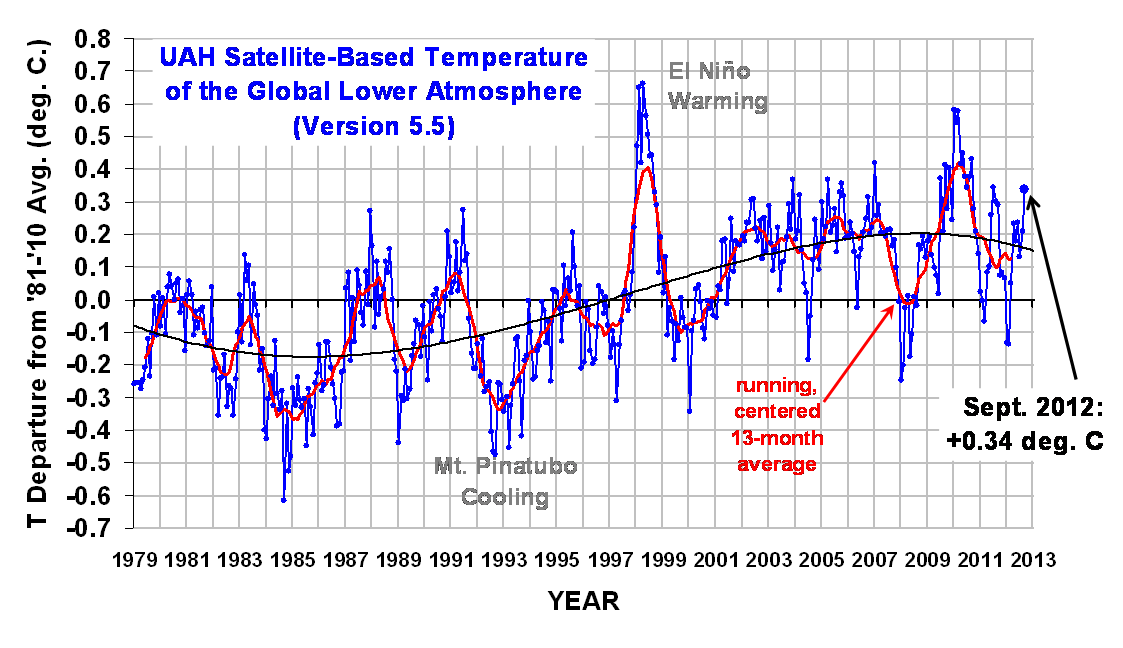This week saw the release of Climate Change in the American Mind, a report interpreting an important poll concerning American public opinion about extreme weather and climate change. Media across the world immediately gave this survey from the Yale Project on Climate Change Communication and the George Mason University Center for Climate Change Communication extensive and uncritical coverage.
However, as is so often the case, the poll contained subtle biases in favour of the climate scare, flaws that render the poll results useless as a meaningful measure of U.S. public opinion on the issue.
Here is a quick analysis of the two survey questions that were highlighted most by the both the report authors and the press.
- “How much do you agree or disagree with the following statements [sic]: “Global warming is affecting weather in the United States””
- “Some people say that global warming made each of the following events worse. How much do you agree or disagree?”
Both of these are leading questions in that the pollster is assuming that respondents agree that there has been recent global warming. But, since warming generally stopped (see below graph) about 10 years ago, the questions make no sense.

This problem is compounded by the fact that all the items listed after question #2 above, were events that happened in the past two years during a period of no global warming.
Both of the above questions require the respondent to agree or disagree with a statement created by the pollster. But, research shows that agree-disagree questions are not reliable indicators of public opinion since respondents have a tendency to agree with statements no matter what they actually say. This is referred to as Acquiescence Response Bias.
A Pew Research Center experiment demonstrated the impact of this sort of bias:
Respondents were asked whether they agreed or disagree with the following statement:
“The best way to ensure peace is through military strength.”
55% agreed. 42% disagreed. When respondents were given a choice between
“The best way to ensure peace is through military strength”
and
“Diplomacy is the best way to ensure peace”
only 33% supported the military strength option, while 55% supported the second choice.
In other words, the results completely reversed.
If survey coordinators had wanted to determine actual public opinion on climate change and extreme weather events, they should have restructured the questions.
Instead of:
“How much do you agree or disagree with the following statements [sic]: “Global warming is affecting weather in the United States””
They should have written:
“What are the causes of weather affecting the US?”
Followed by a list of possible causes.
Instead of:
“Some people say that global warming made each of the following events worse. How much do you agree or disagree?”
They should have said:
“What do you attribute the following events to? “
Followed by a list of events and then possible causes, from which the respondent selects the best answer.
Pollsters who create biased surveys like that discussed in Climate Change in the American Mind are contributing to both the spiral of silence and the bandwagon effect that make rational discourse about climate change nearly impossible. The Yale/George Mason pollsters must do better.
_____________________________________
Tom Harris is Executive Director of the International Climate Science Coalition (climatescienceinternational.org/) and an advisor to the Frontier Centre for Public Policy.


